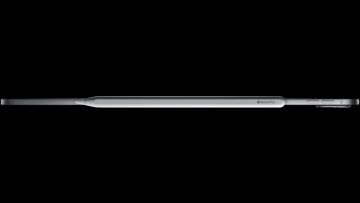- A blood test that uses machine learning to hunt for cancer DNA could reveal lung cancer in patients who otherwise would never have been tested.
- The system is accurate in roughly two-thirds of patients, but that may be enough to save an additional 1,200 lives per year, according to the scientists who developed it.
- Visit BGR’s homepage for more stories.
A team of scientists in the United States has developed a blood test that uses machine learning to hunt for the telltale signs of lung cancer. The system, which is still early in its development, could eventually replace CT scans as a first-line screening measure for suspected lung cancer patients.
The test hunts for tumor DNA that is circulating in a person’s blood, and is far less expensive than CT scans which are typically used to diagnose lung cancer. It’s not yet ready to be used on a widespread basis or relied upon in real-world settings, but the research is incredibly promising and could prove to be a powerful weapon against one of the deadliest types of cancer.
Medical researchers and doctors already know that cancer DNA circulating in a patient’s bloodstream could serve as a tool for diagnosing the disease. However, tasking medical technicians with hunting for those tiny specks of cancer streaming through the blood isn’t realistic. Artificial intelligence, on the other hand, can do that job a whole lot easier than a human can.
In their early testing, the researchers found that their new system is capable of identifying stage 1 lung cancer in 63% of patients who had it. That means it still missed cancers in roughly one-third of those who were tested. That might sound unacceptable, and CT scans are often plagued with false positives but are generally more accurate. However, that might not be a deal-breaker for this kind of new form of testing.
Because of the high cost of CT scans, a lot of potential lung cancer patients don’t get tested at all, leaving them at an enhanced risk of being positively diagnosed with even more advanced stages of cancer later. A blood test that can spot cancer DNA in the blood — even if it’s only 63% of the time — could be an easy screening option that saves a huge number of lives.
The scientists that developed the system believe that using the system in this way could extend the lives of up to 1,200 people per year. Additionally, it’s possible that the system could be modified to hunt for other types of cancers as well. It’s a potentially revolutionary development in cancer screening, but it could be a while before we see these options pop up in hospitals and clinics across the nation or around the world.








